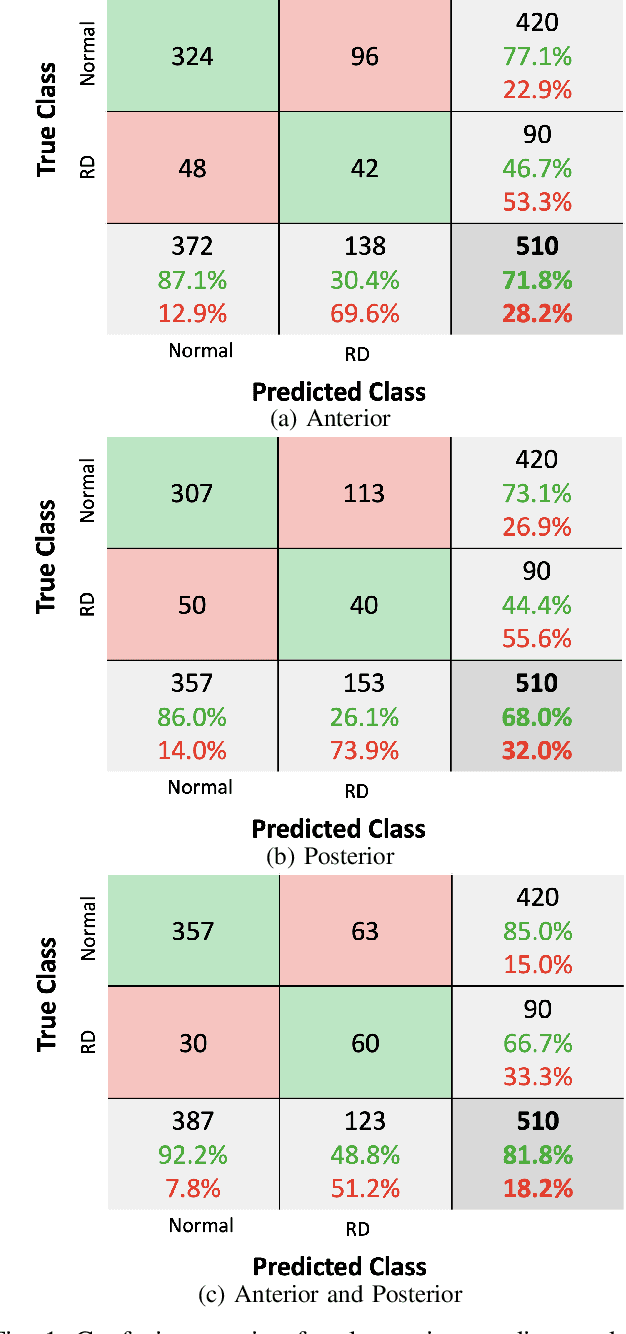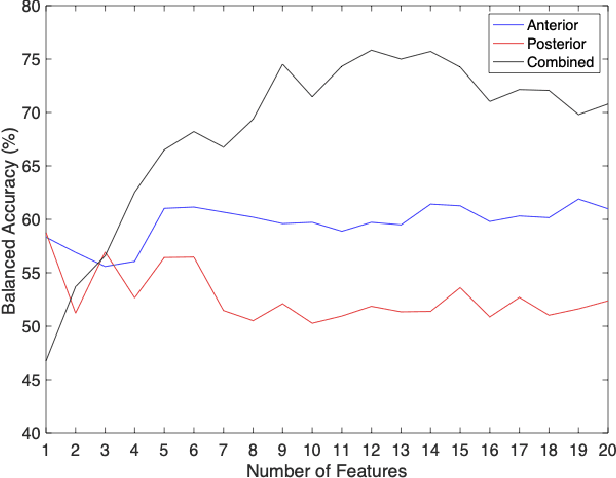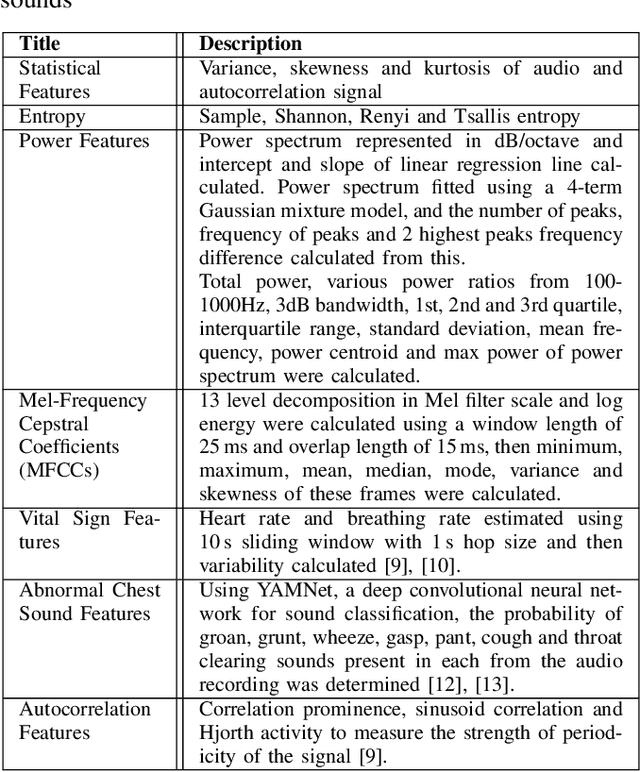Prediction of Neonatal Respiratory Distress in Term Babies at Birth from Digital Stethoscope Recorded Chest Sounds
Paper and Code
Jan 25, 2022


Neonatal respiratory distress is a common condition that if left untreated, can lead to short- and long-term complications. This paper investigates the usage of digital stethoscope recorded chest sounds taken within 1min post-delivery, to enable early detection and prediction of neonatal respiratory distress. Fifty-one term newborns were included in this study, 9 of whom developed respiratory distress. For each newborn, 1min anterior and posterior recordings were taken. These recordings were pre-processed to remove noisy segments and obtain high-quality heart and lung sounds. The random undersampling boosting (RUSBoost) classifier was then trained on a variety of features, such as power and vital sign features extracted from the heart and lung sounds. The RUSBoost algorithm produced specificity, sensitivity, and accuracy results of 85.0%, 66.7% and 81.8%, respectively.
 Add to Chrome
Add to Chrome Add to Firefox
Add to Firefox Add to Edge
Add to Edge